Clarifying regulations in line with the “scientist-centered” principle
According to the assessment of the National Assembly Standing Committee, the Draft Law on Science, Technology and Innovation plays a very important role and is one of the core laws to implement Resolution No. 57-NQ/TW. Therefore, it is very necessary to urgently complete the draft Law to submit to the National Assembly for comments and consideration for approval at the upcoming Ninth Session.
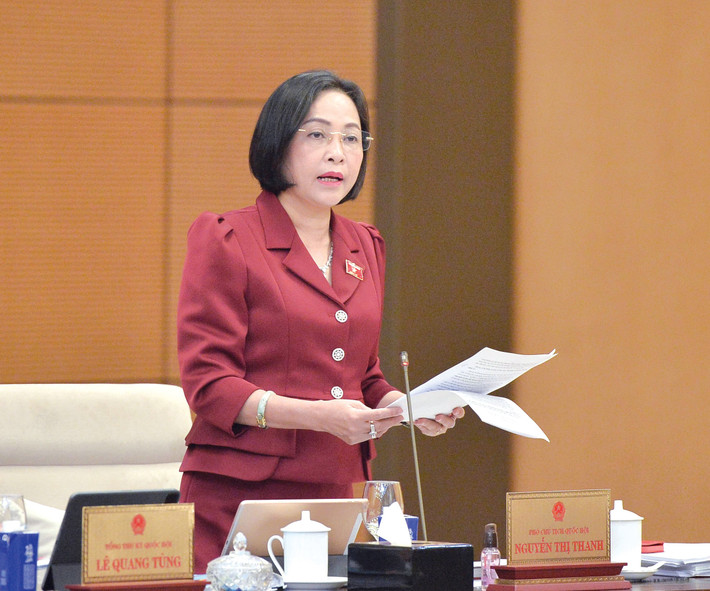
However, according to Chairman of the Law and Justice Committee Hoang Thanh Tung, the structure of the draft Law needs to be further reviewed. For example, the draft Law has Chapter II regulating state management of science and technology, but at the same time there is also Chapter VII on state management responsibilities for science, technology and innovation, in which there are some overlapping contents and repeating each other's regulations.
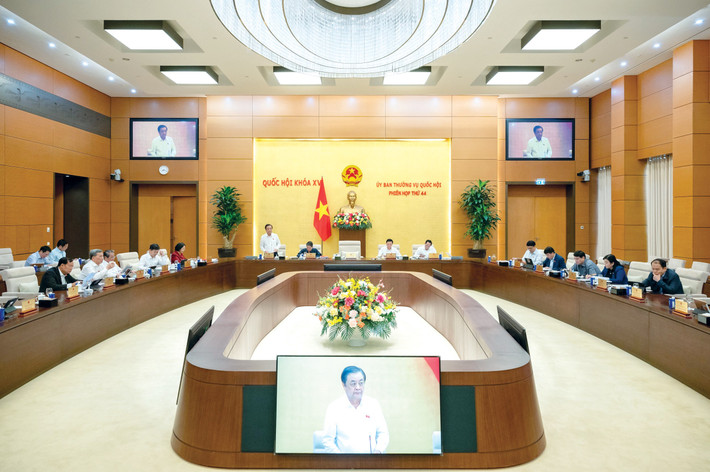
The Chairman of the Law and Justice Committee suggested that it is necessary to design to ensure a more reasonable and concise layout. The current draft Law has 8 chapters and 95 articles, but some provisions are still quite general and principled. “With the spirit of innovation in law-making thinking, agencies need to continue to review and stipulate more concisely and in accordance with the spirit of regulating issues under the authority of the National Assembly, and issues that have been assigned to the Government or have been assigned to the Prime Minister should not be included in the draft Law,” emphasized Chairman of the Committee Hoang Thanh Tung.
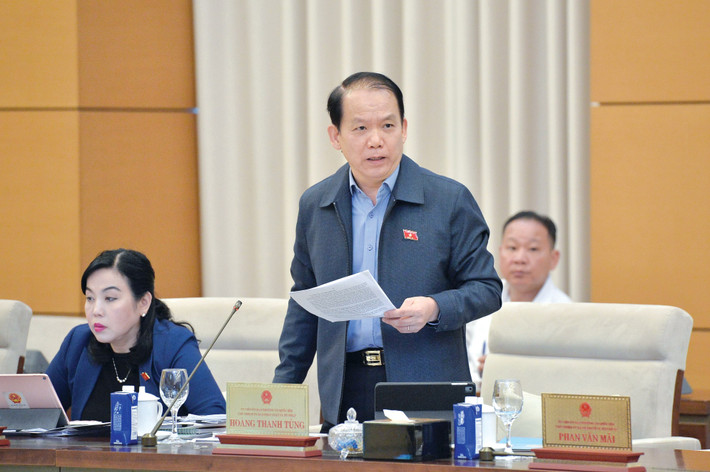
Regarding the level of institutionalization of Resolution No. 57-NQ/TW, the draft Law on Science, Technology and Innovation has institutionalized the content: a mechanism to allow and encourage research organizations and scientists to establish and participate in operating enterprises based on research results; promote knowledge transfer, training of human resources in science, technology and innovation through enterprises with foreign direct investment; grant autonomy and self-responsibility for organization, finance and expertise; use the state budget to hire experts, use tangible and intellectual assets to link and cooperate in science and technology with organizations and enterprises; expand and diversify forms of honoring, praising and rewarding scientists, inventors, enterprises, organizations and individuals with achievements in developing science, technology, innovation and digital transformation.
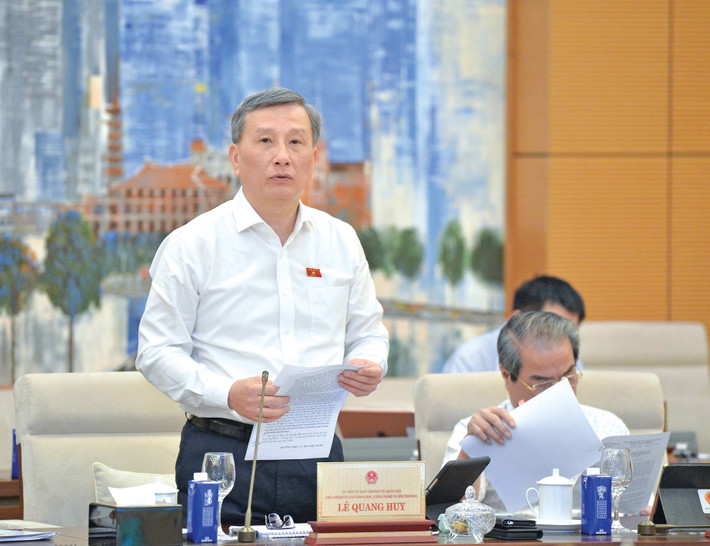
However, through preliminary examination, the Standing Committee of the Science, Technology and Environment Committee requested the drafting agency to clarify the provisions in Clause 4, Article 11 to be consistent with the principle of "taking scientists as the center" stated in Resolution No. 57-NQ/TW; add the subject "organizations and individuals proposing and appraising experimental projects" who are not subject to civil, administrative or criminal liability if they fully comply with the procedures related to the controlled experimental mechanism; add the provision on conferring the title of academician to foreign individuals who are outstanding scientists, contributing to the task of international cooperation in the field of science and technology...
Prioritize human resources content in the policy system
Concerned about the State's policy on developing human resources for science and technology and attracting overseas Vietnamese and foreign scientists in Article 11 of the draft Law, Vice Chairwoman of the National Assembly Nguyen Thi Thanh stated that Article 11 shows 10 policy contents on science and technology development, in which the policy on human resource development is ranked last in Clause 10, after policies on investment, facilities, technology, policies on developing the science and technology market, policies to encourage research and development, policies on international integration...
Considering that this ranking has the meaning of which policies to promote and which policies to focus on in priority order, Vice Chairwoman of the National Assembly Nguyen Thi Thanh suggested that for the development of science and technology, human resource policy is the top priority. Because this is a very important factor to rapidly develop modern production forces, creating a breakthrough in the spirit of Resolution No. 57-NQ/TW, which has identified the prerequisite factors as institutions, human resources, infrastructure, data and strategic technology, in which there should be very clear statements about attracting scientific and technological human resources from overseas Vietnamese intellectuals and foreigners.
Resolution 57-NQ/TW also stipulates the issuance of a special mechanism to attract overseas Vietnamese and highly qualified foreigners to Vietnam to work and live; there is a special mechanism on naturalization, home and land ownership, income, and working environment to attract, employ, and retain leading scientists, experts, and general engineers at home and abroad who are capable of organizing, operating, and commanding the implementation of key national tasks on science and technology, innovation, digital transformation, and artificial intelligence development...
Therefore, Vice Chairwoman of the National Assembly Nguyen Thi Thanh suggested that it is necessary to study and adjust the content on human resources to the priority order in the policy system. At the same time, it is necessary to add contents on attracting human resources from overseas Vietnamese and foreigners, because this is a very special subject. Without clear regulations on conditions, mechanisms and specific policies, it will be very difficult to implement this policy.
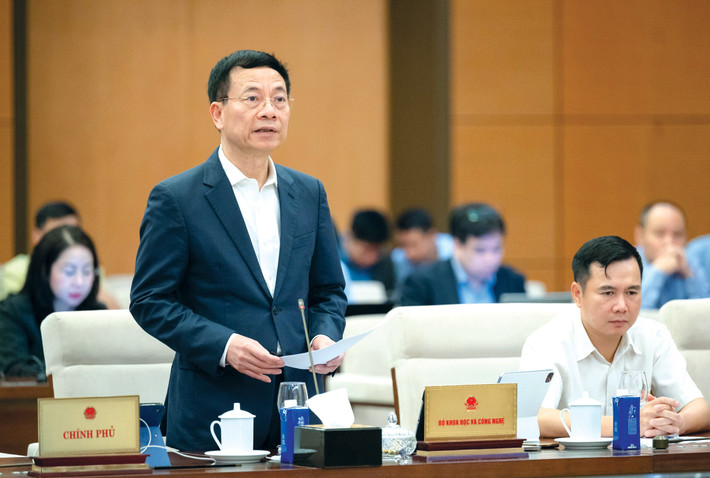
“The draft Law needs to continue to be studied to institutionalize Resolution No. 57-NQ/TW appropriately because attracting overseas intellectuals needs to be considered not only in terms of international cooperation activities but also in terms of attracting them to work, live stably and closely as well as having favorable conditions to build and maintain a network connecting Vietnamese intellectuals abroad; the responsibility to forecast and promptly inform about the need to use domestic experts,” the Vice Chairman of the National Assembly noted.
Speaking at the meeting, Minister of Science and Technology Nguyen Manh Hung said that the Ministry will seriously study, absorb and explain all opinions; continue to closely coordinate with the Committee on Science, Technology and Environment, the Committees of the National Assembly and relevant ministries and branches to review, revise and complete the draft Law with a cautious, scientific and practical spirit to ensure the highest quality when submitting it to the National Assembly for consideration and approval.
Minister Nguyen Manh Hung believes that, with the support of the National Assembly, the Law on Science, Technology and Innovation will become an important legal tool, strongly promoting the country's socio-economic development in the new era.
Source: https://daibieunhandan.vn/can-dat-chinh-sach-ve-nguon-nhan-luc-la-uu-tien-hang-dau-post410339.html












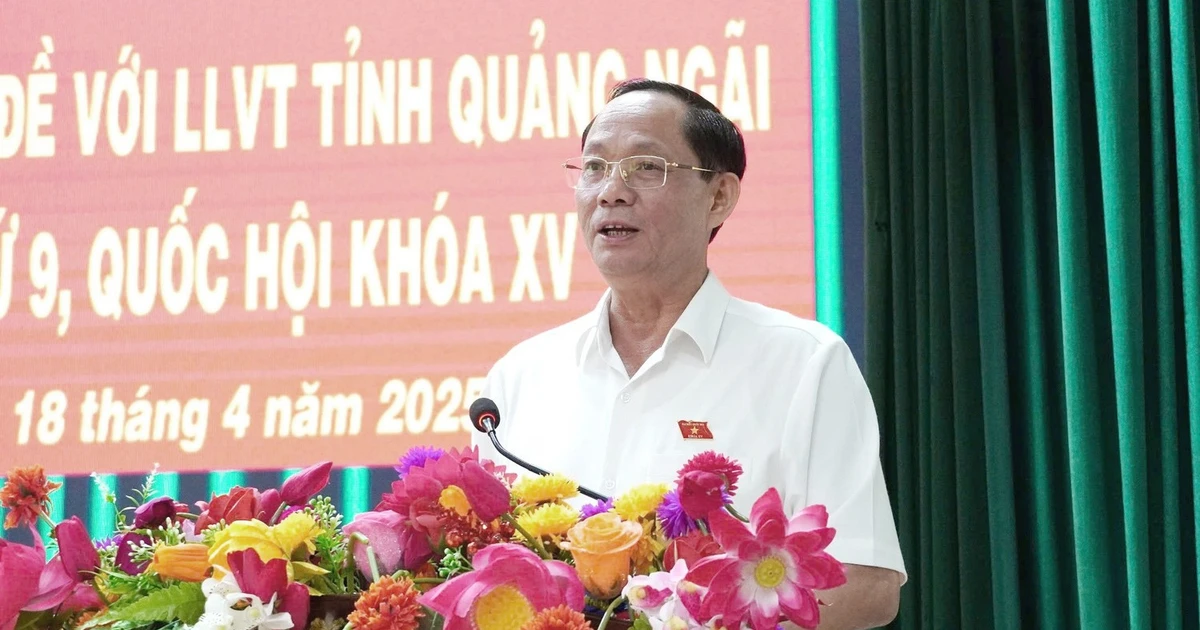
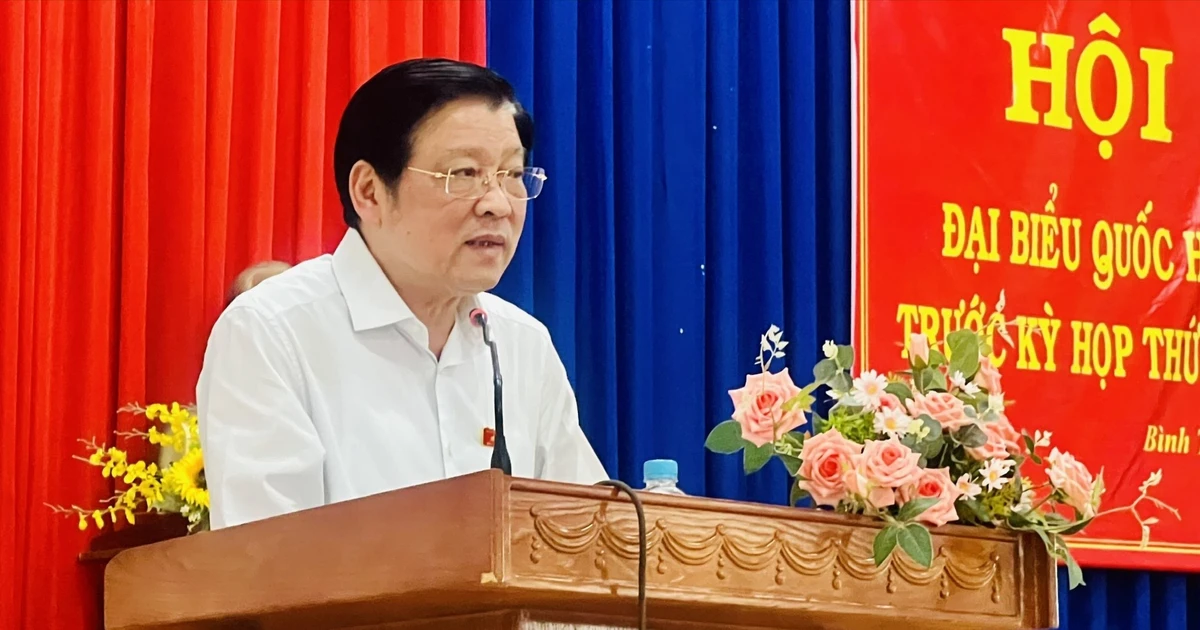











































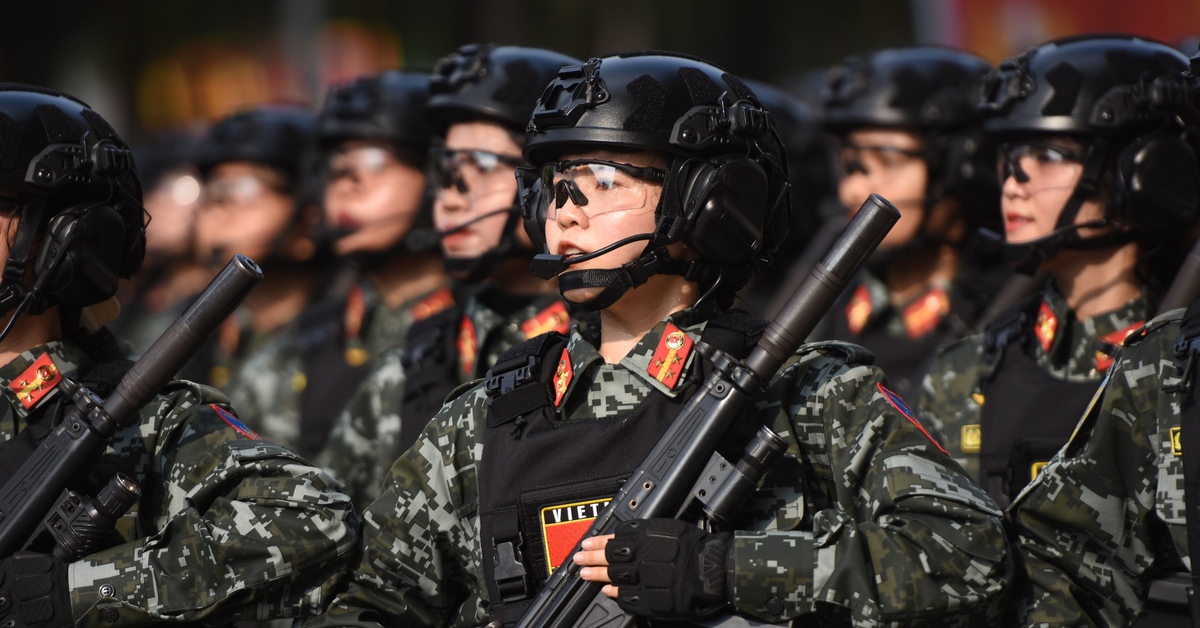







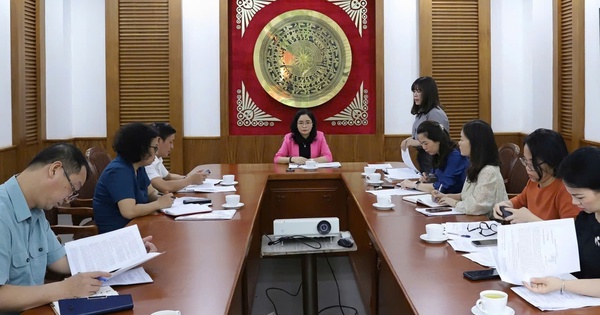

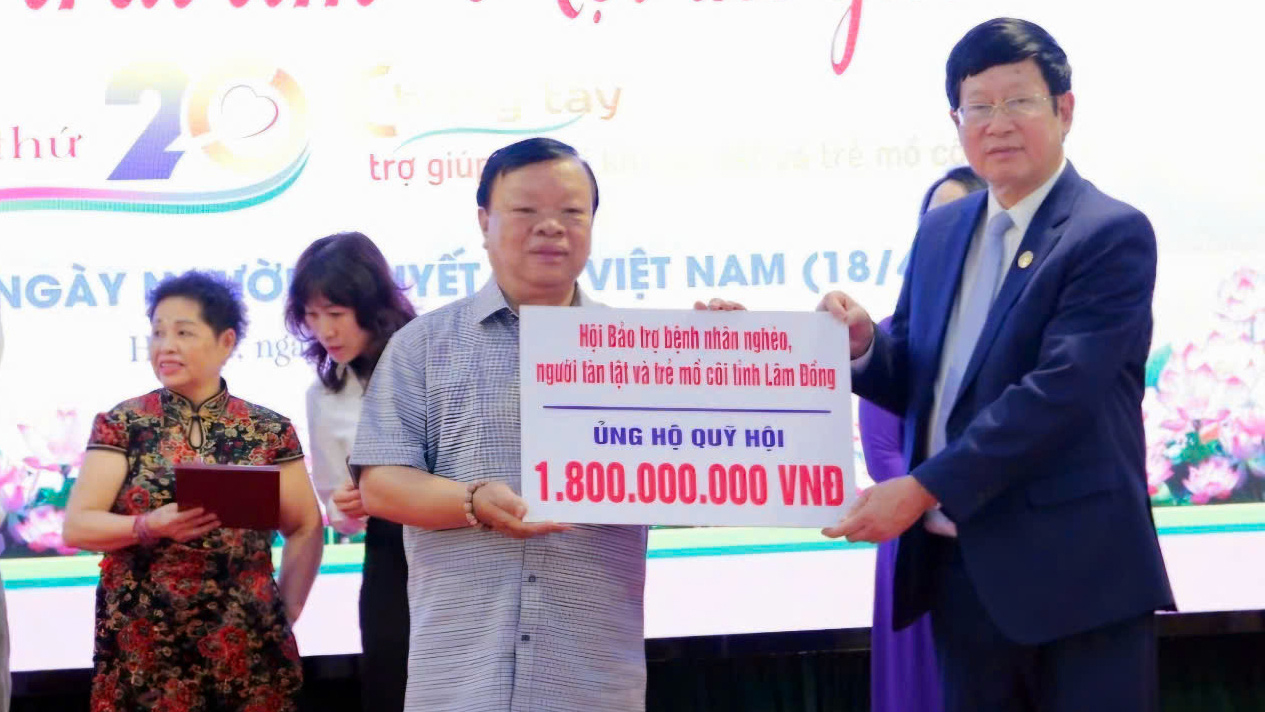

















Comment (0)